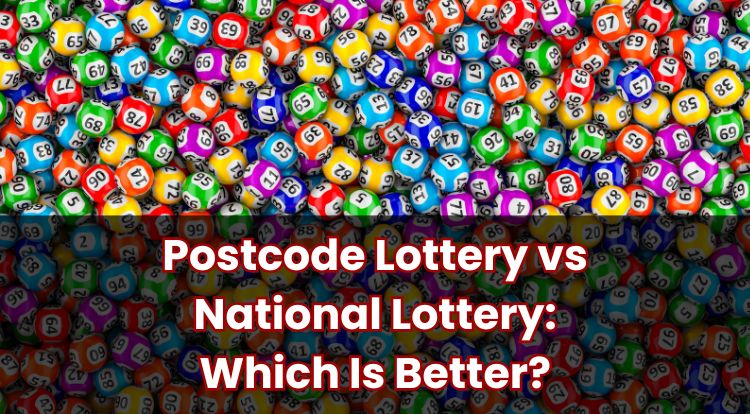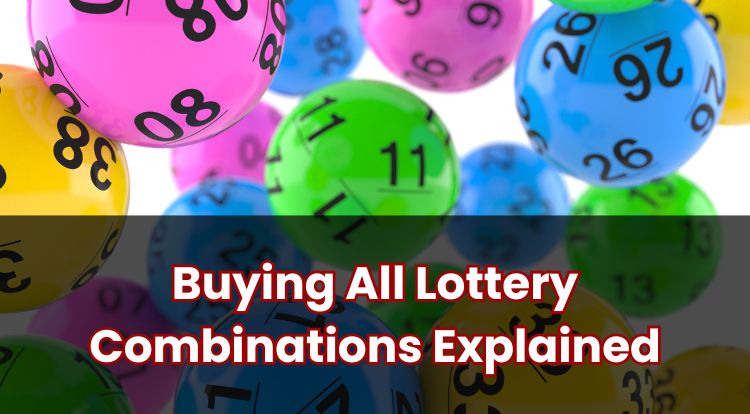Reasons You Never Win The Lottery
Many people hope to see their numbers come up on the National Lottery, but in reality, winning the jackpot is extremely rare. The odds are high: your chance of scooping the top prize in the UK Lotto is around 1 in 45 million.
Despite these long odds, thousands of tickets are sold every week and only a handful of players claim a significant prize. What makes winning so difficult, and why do so few people ever hit the jackpot? If you have ever questioned your chances, or wondered how the lottery works behind the scenes, keep reading as we explain the facts.
Understanding the real nature of draw-based games might help you make better choices before you spend your money.
How Lottery Games Truly Work
When you enter the National Lottery’s Lotto game, you usually choose six numbers from 1 to 59. Each draw selects six numbers completely at random, along with one bonus ball. The aim is simple: the more of your numbers that match those drawn, the bigger the potential prize.
It is important to remember that lotteries are not based on any skill. Each line is determined by random chance, whether you pick your own numbers or use a “Lucky Dip”. There is no pattern to follow, and no number set is favoured over another.
As mentioned, the odds of matching all six numbers to win the Lotto jackpot are about 1 in 45 million. The chances improve slightly for smaller prizes, such as matching three numbers, though these awards are significantly lower in value.
Each different lottery has its own rules, potential prize structure, and odds. Before entering, checking the official rules for each game can help you know exactly what you’re playing for.
Since every outcome is random, there is never a fool-proof way to win. Setting clear limits, and only spending what fits your budget, can help to ensure you play responsibly.
Breaking Down the Odds
The odds of winning depend entirely on how many possible number combinations are available within each game. Every ticket has exactly the same chance, whether many people enter or just a few.
Here are three of the UK’s biggest lotteries and their top prize odds:
- National Lottery Lotto: Match all six numbers for the jackpot — odds are about 1 in 45,057,474.
- EuroMillions: Match five main numbers and two Lucky Stars — odds stand at 1 in 139,838,160.
- Thunderball: Match five numbers plus the Thunderball for the top prize — odds are 1 in 8,060,598.
If you look closer, you will see that these odds are shaped by the format of each game and the volume of possible combinations.
As covered earlier, each draw is random and independent. No matter what numbers you pick, the odds stay the same from one draw to the next. Having these facts in mind may help you stay realistic about the possible outcomes.
The Truth About Winning Tricks
People often look for ways to try and boost their chances, from always playing the same numbers to choosing a “Lucky Dip.” But do any of these tactics really work, or are all entries equally likely? Let’s revisit these common ideas.
Playing the Same Numbers
Many people pick the same set of numbers every week, thinking commitment might make a difference. In reality, as mentioned before, every draw is completely random. Whether you stick with one selection or pick new numbers each time, the probability never changes.
Lucky Dip vs Own Numbers
Opting for a “Lucky Dip” allows the computer to pick numbers for you, while entering your own means you can choose ones that matter to you. Refer back to how the odds work: both methods give you identical odds of potentially winning. The only real difference is that random selections may avoid popular patterns, sometimes reducing the chance of sharing a possible win with others.
Playing Online vs In-Store
If you choose to buy a ticket online or in a shop, the draw itself remains the same, following strict procedures for randomisation. Purchasing online can be more convenient and may offer automatic notifications, but the process for drawing numbers is unchanged. How you buy is just personal preference and doesn’t affect your odds.
Every method is subject to the same randomness. If you do play, always remember to keep to your budget and only use money set aside for entertainment purposes.
Is The Lottery Rigged?
You might sometimes wonder if the National Lottery is fair. In the UK, all official lotteries are closely regulated and monitored by the Gambling Commission.
Draws are carried out using certified machines and verified procedures. Independent observers are always present and the whole process is thoroughly audited. This ensures every number is selected at random, without interference.
Some online instant-win games use Random Number Generators (RNGs), which are also checked and approved by independent bodies. This guarantees that outcomes cannot be predicted or tampered with.
Long odds and rare jackpot wins are simply part of the design, not a sign of unfairness. If you want to read more about how these procedures work, official details are available from the National Lottery and Gambling Commission websites.
Keeping in mind the true nature of these games can help you approach them with clear expectations.
Why It Can Feel Like You Never Win
If you have played the lottery for a long time without much return, you are not alone. This is down to the odds involved and the structure of these games.
As covered earlier, millions of entries compete for just a few winning combinations. While smaller potential wins like matching three numbers are more common, these often only return your ticket price or offer another free go, depending on the game.
Media stories about jackpot winners can make it seem as though wins are common, but with the probability so low, going many draws without a prize is completely expected. Regular participation does not increase your odds, nor does it make your entry any more likely.
Remember, every draw is random and independent, and every ticket stands equal — just as explained throughout the article.
Knowing how the lottery works can help you make your own informed choices about how and if you wish to play.
*All values (Bet Levels, Maximum Wins etc.) mentioned in relation to these games are subject to change at any time. Game features mentioned may not be available in some jurisdictions.
**The information provided in this blog is intended for educational purposes and should not be construed as betting advice or a guarantee of success. Always gamble responsibly.




